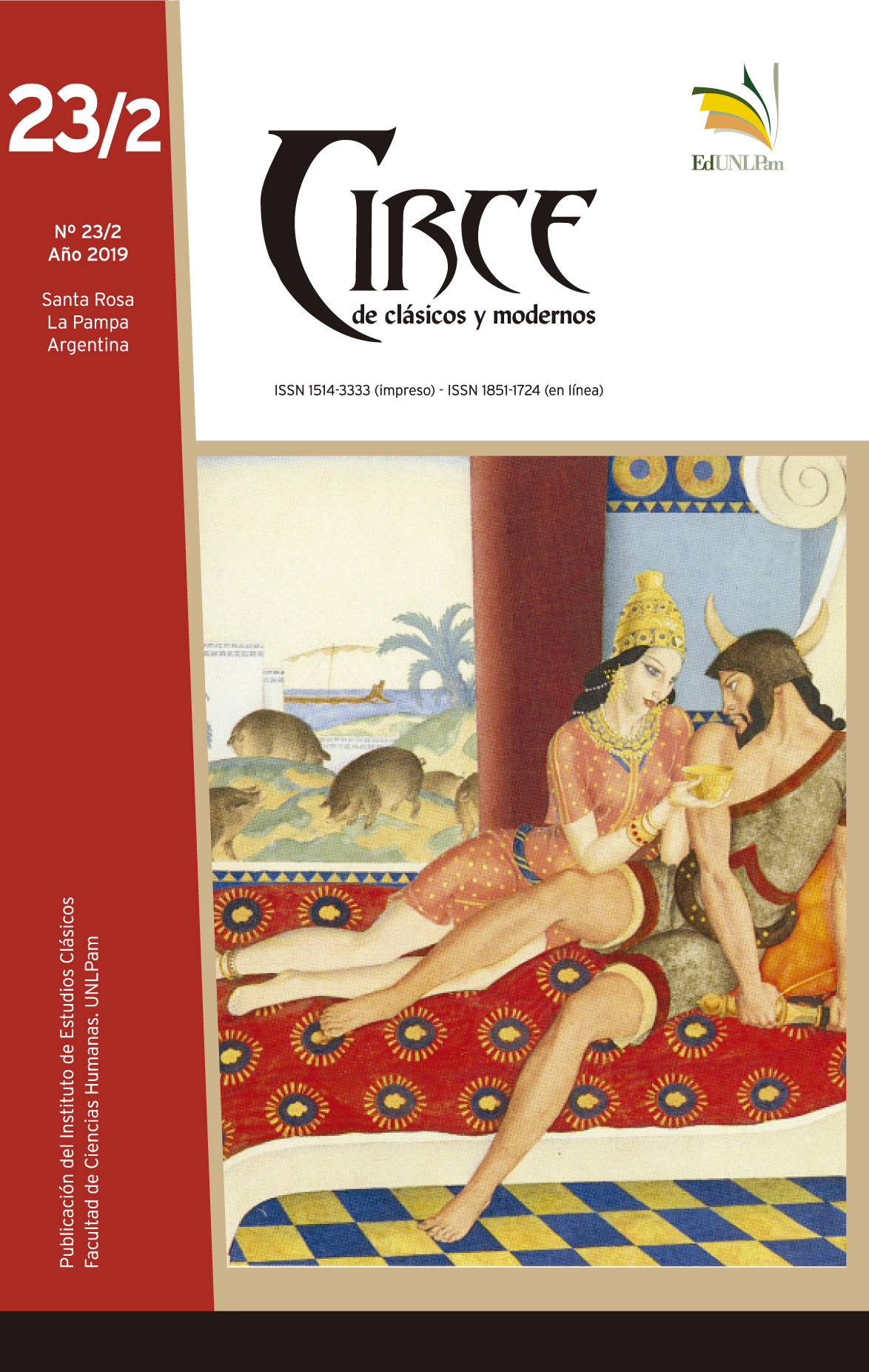The funus romanorum in the Aeneid: an analysis of heroic funerals of Miseno, Anchises and Palante
Keywords:
Death, funeral, Roman, symbol, apotheosisAbstract
This work analyzes the importance of carrying out the funus romanorum with dignity, from the passages of the Aeneid in which the funeral honors of three important personages are shown: a) Miseno, from which the problem that it represented will be analyzed, in the Roman world, both for the living and the dead, to remain unburied and the contamination that death brings to those who have contact with the corpse; b) Anchises and the cult of their Manes and the importance that this activity possessed, not only in the Aeneid, but in all of Rome, and from which it is affirmed in this work that the cult of their Manes not only acquires a fundamental importance at the oracular, but prefigured as a principle of future Roman apotheoses; c) the funeral of Palante, which are highlighted by the pageantry with which they are made, the consideration of the finitude of the hero and the symbolic character they possess.Downloads
References
Bautista Calvo, J. (ed.) (1994). Cicerón. Filípicas. Barcelona: Planeta.
Fontán Barreiro, R. (trad.) (1990). Virgilio. Eneida. Madrid: Alianza.
Mynors, R. A. B. (ed.). (1969). P. Vergili Maronis Opera. Oxford: Oxford University Press.
Bibliografía crítica citada
Bayet, J. (1986). La Religion Romana. Historia Política y Psicología. Madrid: Cristiandad.
Eliade, M. (1974). Tratado de historia de las religiones. Madrid: Cristiandad. Eliade, M. (1998). Lo sagrado y lo profano. Barcelona: Paidós.
Gheerbrant, A. & Chevalier, J. (2009). Diccionario de los símbolos. Barcelona: Herder.
Hope, V. (2007). Death in ancient Rome: a sourcebook. London: Routledge. Lewis, C. T., Freund, W., & Short, C. (1969). A Latin dictionary: founded on Andrews’ edition of Freund’s Latin dictionary. Oxford: Clarendon Press.
Lindsay, H. (2004). Death-Pollution and Funerals in the City of Rome en Hope, V. y Marshall, E. (eds.). Death and Disease in the Ancient City. London: Routledge; 152-173.
Meslin, M. (2001). L‘Homme Romain. Des Origines au Ier Siècle de Notre Ère. Paris: Complexe.
Grimal, P. (2008). Diccionario de mitología griega y romana, Barcelona: Paidós.
Price, S. (1996). “From noble funerals to divine cult: the consecration of Roman Emperors” en Cannadine, D. & Price, S. (1996). Rituals of Royalty.
Power and Ceremonial in Traditional Societies. Cambridge: University Press; 56-105.
Rohde. E. (2009) Psique: La idea del alma y la inmortalidad entre los griegos. Madrid: Fondo de Cultura Económica.
Richard, J. (1966). “Tombeaux des empereurs et temples des «divi»: notes sur la signification religieuse des sépultures impériales à Rome”: Revue de l’histoire des religions 170; 127-142.
Toynbee, J. (1996). Death and burial in the roman world. London: Thamer and Hudson.
Vernant, J. P. (2001). El individuo, la muerte y el amor en la antigua Grecia. Barcelona: Paidós.
Downloads
Published
Issue
Section
License
Los autores que tengan publicaciones con esta revista, aceptan los términos siguientes referidos a los derechos de autor/a:
1. Los autores/as conservarán sus derechos de autor y garantizarán a la revista el derecho de primera publicación de su obra, el cuál estará simultáneamente sujeto a la Licencia de reconocimiento de Licencia Creative Commons Atribución-NoComercial-CompartirIgual 4.0 Internacional (http://creativecommons.org/licenses/by-nc-sa/4.0/). que permite a terceros compartir la obra siempre que se indique su autor y su primera publicación esta revista. El autor es el titular del copyright.
2. Los autores/as podrán adoptar otros acuerdos de licencia no exclusiva de distribución de la versión de la obra publicada (postprint) siempre que se indique la publicación inicial en esta revista. La cesión de derechos no exclusivos implica también la autorización por parte de los autores para que el trabajo sea depositado en el repositorio institucional y difundido a través de las bases de datos que el editor considere adecuadas para su indización, con miras a incrementar la visibilidad de la publicación y de sus autores.
3. Se permite y recomienda a los autores/as difundir su obra a través de Internet antes y durante el proceso de envío, lo cual puede producir intercambios interesantes y aumentar las citas de la obra publicada.







.jpg)









2.png)



